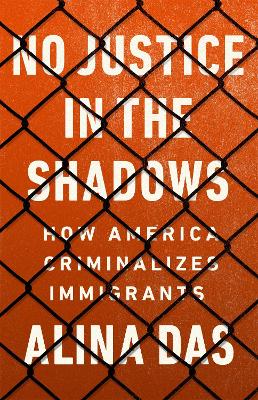
Each year in the United States, 400,000 people are arrested, detained, and deported, trapped in what leading immigrant rights activist and lawyer Alina Das calls the 'deportation machine.' They are people who politicians like President Trump would have us believe are 'bad hombres.' But while we're debating border walls, travel bans, child detention, and quotas, these individuals are banished from their homes, their families, and their communities, and by a country that celebrates itself as a 'nation of immigrants.'As Das explains in her urgent book, we cannot break the pattern of the abuse and marginalization of immigrants in the U.S. until we understand fully how the system works. And in this country, that means understanding how racism and criminalization intersect to doubly punish communities of color. Das traces the history of immigration policy, showing how its evolution has always been linked to racist exclusion. Combining these systems exacerbates the flaws in both-and when 1 in 3 Americans has a criminal record, millions are caught in the crosshairs. Das weaves the history of immigration with moving narratives of those who have been caught up in the deportation machine, including Aba, a hardworking mother of four young children; Ely, a survivor of the crack epidemic in the 1980s; and Alonso, a DACA recipient. In deconstructing the 'criminal alien' narrative, No Justice in the Shadows offers an essential path forward: an inclusive immigration policy premised on human dignity, due process, and respect for all people.
Very Similar to Michelle Alexander's The New Jim Crow But Focusing On Immigration. This book directly references Alexander's work at a couple of points and is told in a similar style and with similar strengths and weaknesses. Namely, it builds a well documented case, but uses more anecdotal "evidence" as its primary narrative structure. I rate it slightly above Alexander's work because it doesn't have quite as glaring a blindspot as that other work. Specifically, while Alexander's work regarded race above all other factors, Das' work here shows the truly wide scope of immigration control in the US, from its earliest days working as much against Europeans as anyone to its more modern incarnations targeting first Chinese and other Asians to the fairly ubiquitous in current regimes of pretty well everyone. By and large, how you feel about Alexander's work will mirror how you feel about Das', and that isn't necessarily a bad thing for Das' pocketbook since Alexander's work is so often discussed and cited even so many years after publication. Recommended.
Reading updates
-
Started reading
-
Finished reading
-
13 February, 2020:
Reviewed
